Academic Integrity Reports and Statistics
The following webpage contains important reports and statistics prepared by the AIO. The content is broken down into three sections: Reports of Academic Integrity Violations over Time; Academic Integrity Training; and Annual Reports. To view information for each section, please click on the plus sign (+) located on the specific section. If you have questions or concerns related to any of the information contained within, please email aio@ucsd.edu.
- View the AY23-24 Annual Report (PDF)
Reports of Academic Integrity Violations over Time
Overall Reports
Over the past six academic years, the Academic Integrity Office (AIO) has received approximately 8,325 reports of alleged academic integrity violations involving 6,366 unique students. The reports were submitted by an estimated 929 unique instructors in 812 unique classes. The total reports received increased by up to 81% during the pandemic and have since stabilized back to pre-pandemic norms. The images below show the total reports received from academic year (AY) 2018-2019 through 2023-2024 as well as the percentage +/- reported when compared to the previous academic year.
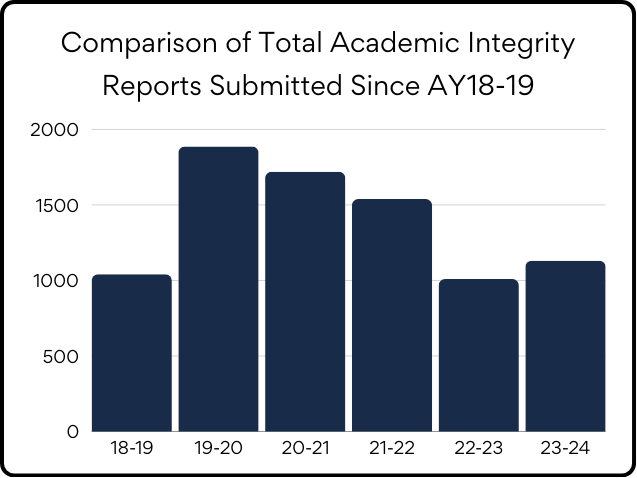
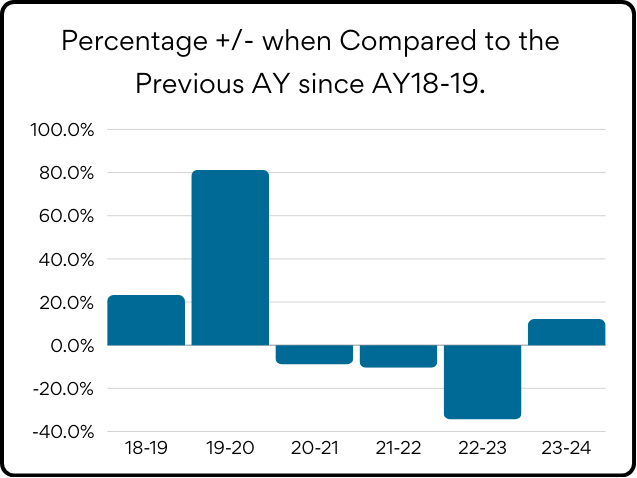
Reports by Quarter
Since AY11-12, the winter term has produced the highest percentage of reports per academic year. Below, is a graph demonstrating the breakdown of reports by academic quarter. Please note, reports received during Summer Session I, Summer Session II, or Special Summer Session are combined into a general “Summer” quarter. In addition, cases listed as “Other” are reports received during the listed academic year that originate from courses in a previous academic year.
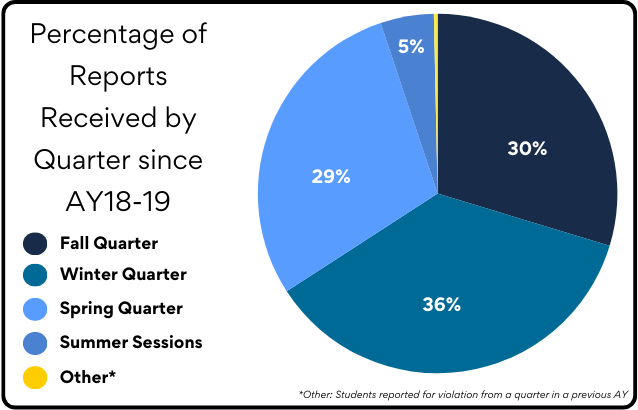
Reports by Sanctioning Guideline Characteristics
The demographics of individual cases are used prevalently when a Resolution Appropriate Administrative Authority (AAA) determines the appropriate disciplinary action to assign. Specifically, the individuals and report characteristics are used to formulate the students Sanction Guidelines score.
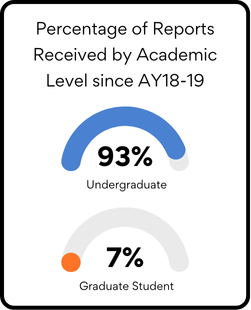
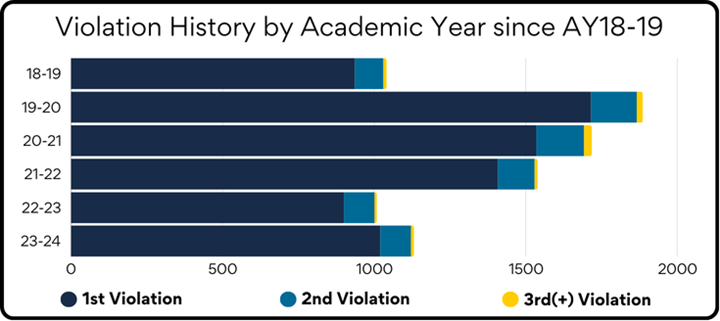
The specific characteristics of violations reported to the AIO is broken down into violation types (minor, moderate, serious, and egregious) with specific violation characteristics listed under each violation type. The below section provides graphs of the violation types received by academic year.
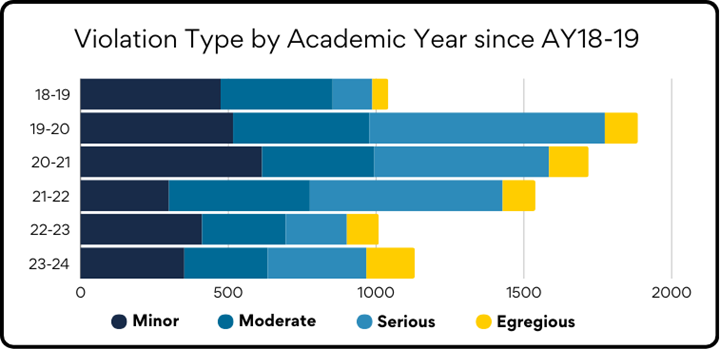

Reports by Outcomes
In the Academic Integrity process, cases are resolved in one of two ways: informally or formally. The majority of cases are resolved informally during resolution meetings between the student and the Resolution AAA. The outcomes during the informal process either a student accepting responsibility, or the allegation being withdrawn. If a student contests the allegation and the instructor saw no valid reason to withdraw the allegation, the case is resolved formally through the Academic Integrity Review Board (AIRB) process.
The graphs below summarize how cases have been resolved since AY18-19 and the average number of business days it takes to resolve a case either formally or informally.
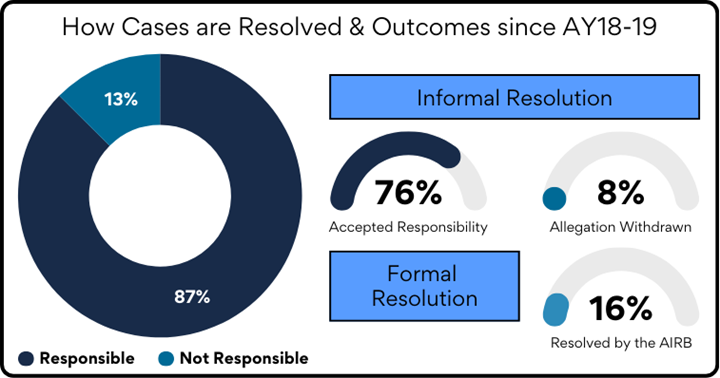
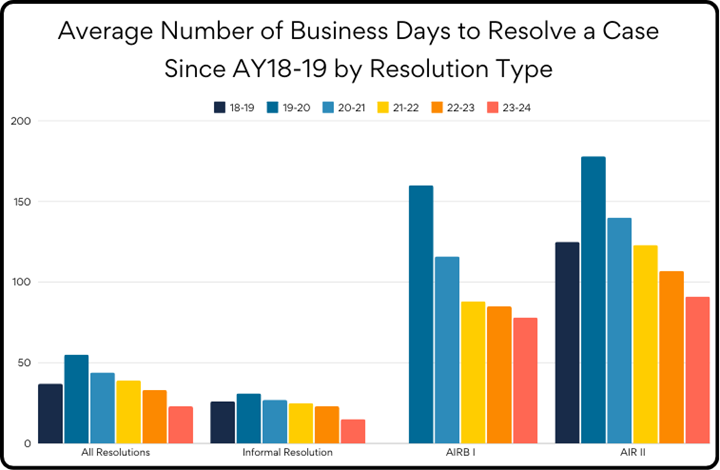
*Please note: Not all AY23-24 cases have been resolved.
Academic Integrity Training
The AIO offers six (6) workshops/seminar programs designed to encourage students to reflect on their academic integrity experiences. Since AY19-20, more than 6,000 students have been assigned to complete one or more AI training programs.
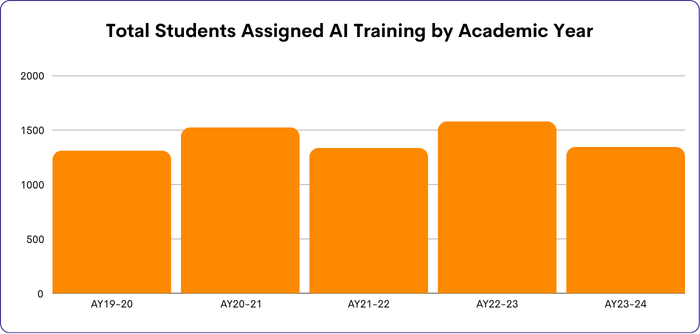
During the resolution process, the Resolution AAA assigns students the training(s) they deem are most appropriate and beneficial based on the allegation and their professional judgment. Virtually all students (99%) are assigned to complete Universal Pre-Requisites, as well as at least one training program.
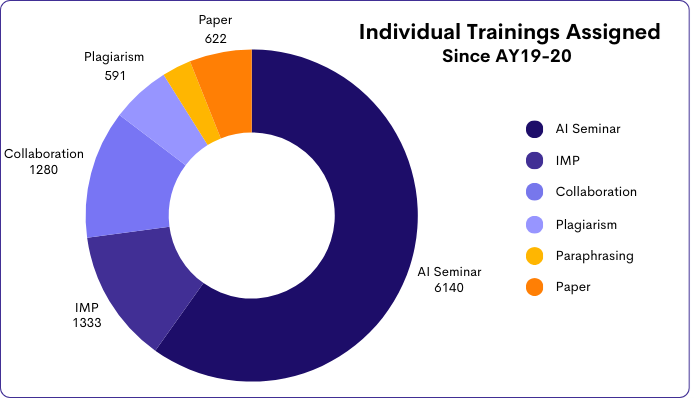
1:1 Meetings
Regardless of the type of AI training assigned to an individual student, they will be expected to engage in at least one 1:1 meeting with a student peer educator/mentor to discuss their training. Since AY19-20, AIO student staff completed over 10,000 1:1 meetings.
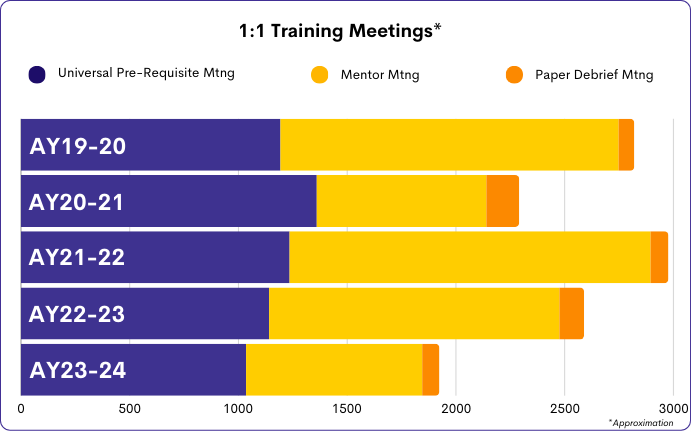
AI Seminar
Since AY17-18, 90% of students are only reported for an academic integrity violation once. Of those, the vast majority are assigned to complete AI Seminar. AI Seminar is the part of the AIO’s core curriculum, and consists of four facilitated sessions reviewing the fundamentals of individual values, ethical decision-making strategies, and justifications. Following training, students complete an evaluation to provide feedback regarding their experience.
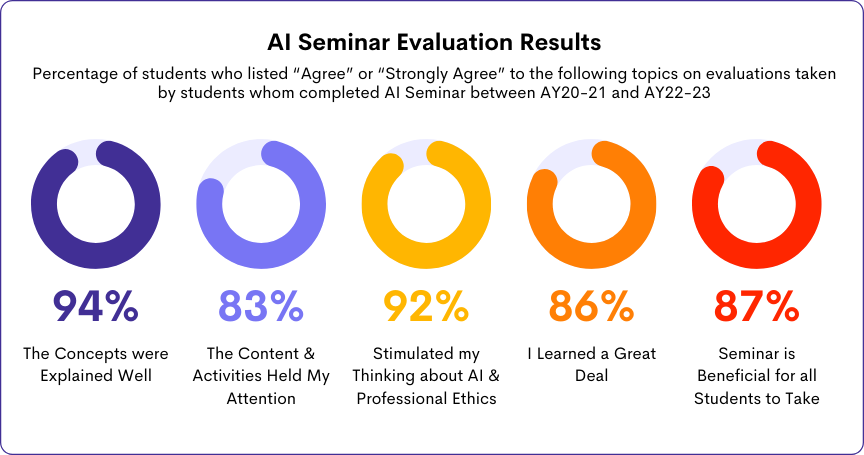
Annual Reports
Additional Statistics
UC San Diego faculty and staff with an educational need for additional statistics may fill out this AI Statistics Request form. If you have any questions, please contact AI Office Director Dr. Tricia Bertram Gallant at aio@ucsd.edu.
Disclaimer
While every effort has been made to ensure the accuracy and completeness of this data, it is important to note that there may be some errors or inconsistencies. These could arise from various factors such as data entry errors, reporting discrepancies, or updates to case statuses after the data was compiled. We recommend interpreting the findings with these potential limitations in mind. We are continually working to improve our data collection and reporting processes to provide the most accurate and up-to-date information possible.